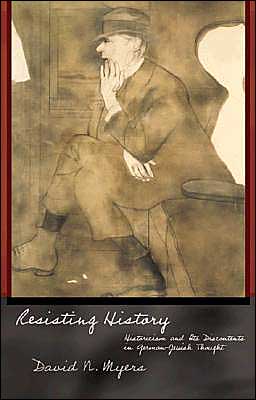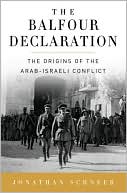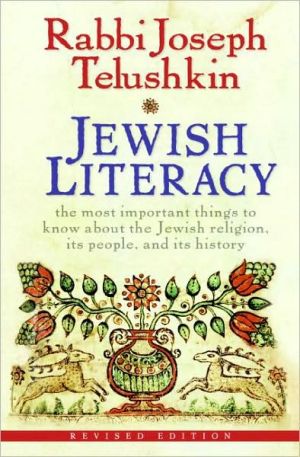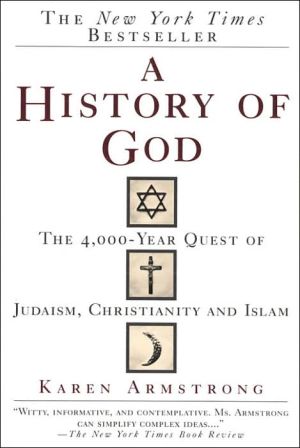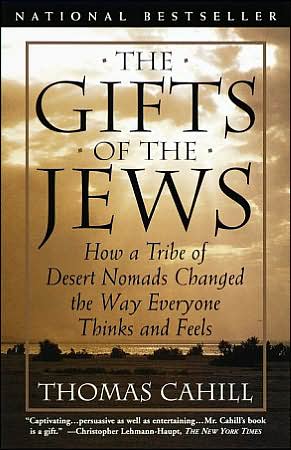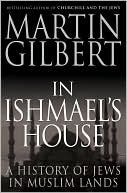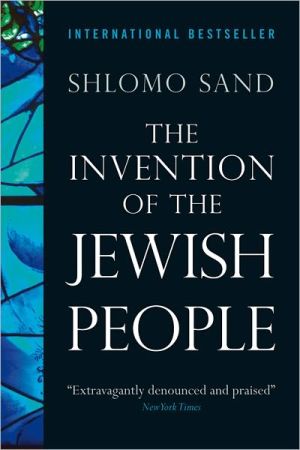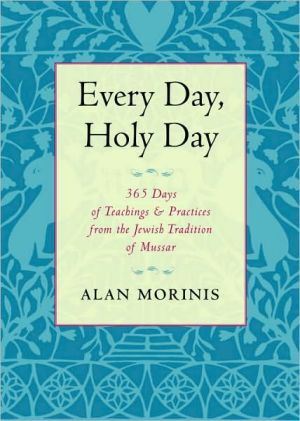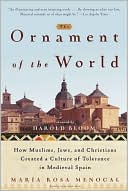Resisting History: Historicism and Its Discontents in German-Jewish Thought
Resisting History examines the backlash against historicism, focusing on four major Jewish thinkers. David Myers situates these thinkers in proximity to leading Protestant thinkers of the time, but argues that German Jews and Christians shared a complex cultural and discursive world best understood in terms of exchange and adaptation rather than influence.\ After examining the growing dominance of the new historicist thinking in the nineteenth century, the book analyzes the critical responses...
Search in google:
"In Resisting History, David Myers places himself among the most skillful and penetrating interpreters of the modern Jewish intellectual experience. Myers offers an exciting and compelling analysis that demonstrates how the 'historicist readings' of the Jewish past inaugurated by the nineteenth-century practitioners of juedische Wissenschaft gave way to a host of 'antihistoricist' twentieth-century cultural-religious-philosophical alternatives. Resisting History compels the reader to reflect on the subtle dialectics involved in the encounter between Jewish tradition and the modern world as Jews--like other moderns--engage in the ongoing human task of constructing meaning. This book will deservedly command a large audience."--David Ellenson, President, Hebrew Union College-Jewish Institute of Religion"Antihistoricism may have also its own history. David Myers's masterpiece convincingly demonstrates that in Judaism its modern manifestations certainly have a precise geography. After chartering the historicistic approach in what he calls the Jerusalem-school in his first book, in this fascinating and well-documented study he turns back to map the main stages of the German-Jewish exponents of the attempt to resist German historicism. Indubitably, a major contribution to modern Jewish intellectual history and thought."--Moshe Idel, Hebrew University, author of Absorbing Perfections"It is one of the great paradoxes of modernity that historians are our idol-smashers but history is our idol. David Myers's fascinating and erudite book tells the refreshing tale of Jewish philosophers and theologians who refused to allow history the last word in the understanding of life. He shows that there was a day, not so long ago, when facts were not the most cherished possession of culture, and metaphysical speculation was the enemy of intellectual complacence, and time was the beginning of reflection and not its end. Myers has written a stirring and significant chapter in the history of the limits of history, a genuinely critical book."--Leon Wieseltier"This is Jewish intellectual history at its best. Myers opens a new gate to the way that modern Jews looked at their history. Without any doubt, this book--opposing many opinions that have thus far been taken for granted--will have a major impact on future work in Jewish Studies. The broad topic, the depth of research, the plethora of new sources, and last but not least the beautiful style should appeal to an audience beyond the circles of Jewish Studies."--Michael Brenner, author of The Renaissance of Jewish Culture in Weimar Germany"Lucidly written and well argued, this book shows a superb command of the available literature and demonstrates considerable historiographical sophistication. It represents a valuable complement to Myers's earlier venerable work."--Richard Wolin, author of Heidegger's Children Susan Meld Shell - Hebraic Political Studies This is a fine study of a group of early-twentieth-century German-Jewish thinkers who have generally received too little attention. Their mainly skeptical attitude toward Zionism presages later intellectual and political quandaries. And their appreciation for the theologically and morally destructive implications of historicism is in many ways equally prescient.
Resisting History\ Historicism and Its Discontents in German-Jewish Thought \ \ By David N. Myers \ Princeton University Press\ Copyright © 2006 Princeton University Press\ All right reserved.\ ISBN: 978-0-691-11593-1 \ \ \ Introduction\ I \ Acentury and a half ago, Søren Kierkegaard issued a powerful indictment against one of the main pillars of modern intellectual life. Caught in the throes of spiritual turmoil, the Danish philosopher took aim at the kind of historical thinking that reduced human experience to a long series of disconnected moments. This modern mode of thinking reached its most offensive, Kierkegaard lamented, when applied to the personality of Jesus. He had thorough contempt for the efforts of European historians of his day to attempt a reconstruction of the life of the "historical Jesus," whom they portrayed as a decidedly human figure born and raised in first-century Palestine. Against the historians, Kierkegaard insisted that:\ one can "know" nothing at all about "Christ"; He is the paradox, the object of faith, existing only for faith. But all historical communication is communication of "knowledge," hence from history one can learn nothing about Christ ... History makes out Christ to be another than He truly is, and so one learns to know a lot about-Christ? No, not about Christ, for about Him nothing can be known, He can only be believed.\ Kierkegaard feared that the mostsacred and transcendent of realms had been infected by a destructive contagion: historicism and the practice of modern critical history. The historian's careful measurement of change over time-for instance, in depicting the history of Christianity after Jesus-obscured for him far more than it illuminated. Indeed, Kierkegaard felt compelled to emphasize again and again that, in matters pertaining to the divinity of Christ, "the 1,800 years (or if there were 18,000 of them) have nothing whatever to do with the case."\ Powerful and poignant as it was, Kierkegaard's plaint was hardly the first and surely not the last of its kind. Criticism of modern historical thinking has been almost as common as the thinking itself. Frequently, it has been trained on "the quest of the Historical Jesus," as in Albert Schweitzer's well-known book of that (English) title from 1906. Schweitzer was far more immersed in and sympathetic to historical scholarship on Jesus than Kierkegaard. But at the end of the day, the renowned missionary-physician arrived at a conclusion not altogether dissimilar: namely, "it is not Jesus as historically known, but Jesus as spiritually arisen within men, who is significant for our time and can help it."\ But what exactly was so distasteful or unsettling about modern historical thinking? What prompted scholars of different disciplines and denominations to attack it with such fervor? In the first instance, it was history's ubiquity. Friedrich Nietzsche bemoaned this fact in his 1874 essay "On the Use and Abuse of History" when he wrote of the dangerous "surfeit of history." A half century later, Ernst Troeltsch, the German Protestant theologian, called attention to "the historicization of all our knowledge and perception." Both Nietzsche and Troeltsch realized that one could hardly think of an event from the past without relying on the causal logic of modern historicism. This logic dictated that each event be understood as an individual unit, assessed on its own terms and according to its own unique development. Caught in the fast-moving current of history, events floated like petrified wood, drifting in no particular pattern or direction. Each discrete event had its own distinct properties; the aggregate of such events yielded no coherent design.\ This state of fragmentation pointed up another major concern issuing from historicism: the problem of relativism. According to their critics, historians went about evaluating each event on its own terms, but never set in place any overarching standard, or Archimedean point, of measurement. In the first place, they were captives of their own context, and thus incapable of achieving anything but a relativist or relational perspective on the past. Constrained by such a perspective, they produced an endless string of historical pearls, each carefully polished and catalogued, but at the same time constant reminders of a certain fall from a state of wholeness. In this fallen state, it was no longer possible to assert spiritual or moral truths with certainty. For example, while one might be able to adduce historical evidence to prove the existence of an individual named Jesus, one could never marshal comparable evidence to prove the existence of the mythic Christ of faith.\ In the language of historicism's critics, this condition marked a descent from supernaturalism into "naturalism." Following centuries of tumultuous theological struggle, modern historians now asserted their right to displace God as the primary causal force in history. Borrowing liberally from natural scientific models, they anchored historical causation in a wide array of natural or human forces. The result, according to Ernst Troeltsch, was a steadfast alliance "between naturalism and historicism ... the two great scholarly creations of the modern world."\ Troeltsch was keenly aware of the dangers of this double-barreled assault on transcendent values. He was present and vocal at a particularly acute moment of anti-historicist distress after the First World War. He knew well that the devastation of the war must be assessed not only in the massive loss of life, but also in the staggering blow to epistemological confidence. And so it was in this period that Troeltsch surveyed the universe around him and declared a "crisis of historicism." This call in 1922 resonated throughout intellectual circles in Weimar Germany, from the reactionary right to the radical left. As we shall see in due course, the "crisis of historicism" came to be seen as a major symptom of the broader malaise of modernity that so characterized the Weimar sensibility and stimulated its frenetic political and cultural activity. A decade after Troeltsch, another Protestant theologian and historian, Karl Heussi, was still attempting to get a firm grasp on this social and intellectual crisis. Heussi's 1932 book, Die Krisis des Historismus offered a detailed analysis of objections raised to historicism, while also containing a glimmer of hope that historicism and systematic theology need not stand in diametric opposition.\ Clearly, the Weimar milieu, with its mix of social instability and intellectual audacity, was fertile ground for the kind of debate that ensued over the "crisis of historicism." And yet, if anything, the long and dark decades after the Weimar republic have presented even more formidable challenges to historicism. The Holocaust triggered its own epistemological upheaval, leading many to question the value or even possibility of historical representation (preeminently of the Holocaust itself). Meanwhile, the prominence of post-structuralist literary theories over the past several decades has done little to affirm, and much to call into question, the value of the historian's contextualizing methods. When faced with these methods, post-structuralist critics have often seemed "uncertain and confused, overcome by what appears to them an infinite array of possible contextual relations, each equally fulfilling the claim to stand as 'the context.'" In this regard, post-structuralism has had the effect-consistent with its own skepticism of foundationalist claims-of highlighting the very relativism to which anti-historicists have taken frequent and vociferous exception.\ II\ So the old problems of historical relativism and fragmentation have not disappeared. They are with us today. At the same time, we find ourselves more deeply saturated in an historicist mindset than ever. I am reminded of this paradox by a controversy that recently broke out in the Jewish community of Los Angeles.\ During the Passover holiday of April 2001, Rabbi David Wolpe of Sinai Temple in Los Angeles ignited a firestorm by delivering a sermon that called into question the historical authenticity of the biblical account of the Exodus story. The rabbi pointed out that there was no persuasive historical or archaeological evidence to validate the tale of Israelites escaping the clutches of Pharaoh's army across the Red Sea. By extension, it was not clear that the Israelites had ever been in Egypt as slaves.\ Wolpe's sermon stunned his audience, some of whom deemed his words sacrilege and others of whom regarded them as intellectually courageous. Soon enough, news of the address spilled out beyond the synagogue's walls, due in no small measure to front-page exposure in the Los Angeles Times under the headline "Doubting the Story of Exodus." At both local and national levels, the sermon provoked fiercely divergent reactions. One supporter, writing in a local Jewish paper, insisted that "defending a rabbi in the 21st century for saying the Exodus story isn't factual is like defending him for saying the earth isn't flat." Modern notions of Judaism had moved far away from "a literal understanding of the Torah." Meanwhile, a detractor in the same paper declared simply that "if the Exodus did not occur, there is no Judaism." According to this writer, "logic and common sense" dictate that the Exodus story is more than a fairy tale. Otherwise, why would Jews have continued to repeat it in ritual fashion for three thousand years?\ For many observers from the scholarly world, the wide rift opened by this Passover sermon-if not its content-came as a considerable surprise. For years, historical and archaeological research has challenged the veracity of the Exodus story. One journalist surveying the state of the field in 1993 concluded that "there isn't a shred of hard evidence-not a single potsherd unearthed or one Hebrew letter scratched into a stone-to prove that the Israelites were ever slaves in Egypt, or that they ever wandered in the desert." To be sure, not all scholars would accept this sweeping assertion or the claim that the absence of hard and fast evidence attesting to their presence means that there were no Israelites in Egypt. But ongoing research by archaeologists, including a number of prominent Israelis, has added more fuel to the fire. Their work calls into question not only the presence of Israelites in Egypt, but also the claim that the post-Exodus Israelites went on to conquer Canaan.\ In drawing upon this search, David Wolpe was not seeking to unhinge the faith commitments of Jews. Rather, he hoped to confront head-on the brittleness of literalist readings of the Bible, and in doing so, to "maintain the Jewish tradition of sustaining faith by seeking truth." Whether he succeeded in this task is a matter of opinion. Differences on the question of how to read the Bible have left deep denominational tracks in European and now American Judaism. Rabbi Wolpe's own Conservative affiliation, anchored in a healthy respect for modern scholarship, led him to a stance that was fundamentally unacceptable to the vast majority of Orthodox Jews. At the same time, his words revealed that the gap between academy and community was quite substantial: what many scholars had taken for granted for years was nothing short of scandalous to many in his lay audience.\ Most germane for our purposes is the yawning chasm that this episode revealed between history and faith. Kierkegaard made clear in the mid-nineteenth century that this chasm is a central feature of intellectual life in the West. The Wolpe controversy demonstrated that the conflict between history and faith is not a Christian problem alone, but an ongoing one in the lives of twenty-first century Jews. After all, Rabbi Wolpe declared to his audience that spiritual truths-the exalted ideals of freedom and justice contained in the Exodus story-were independent of historical facts. Ironically, he chose to make the point in decidedly historicist fashion-by summoning up modern scholarly evidence to challenge the historicity of Exodus itself.\ And thus we come up again against a curious paradox hinted at above: ambivalence over the utility of history coincides with an unavoidably historicist way of thinking. We yearn to discover a source of meaning for past events that transcends the single historical fact, but are confined by the limitations of our historicist mode of thinking-just as the Cabbalists were constrained in their efforts to decipher the Divine Word by their unavoidable reliance on human language. The roots of this dilemma surfaced well before the Golden Age of Historicism in the nineteenth century; they reach back at least to the seventeenth century when the tools of critical historical scholarship were first applied by figures such as Spinoza and Richard Simon to Holy Scripture, the bedrock of religious faith and authority. The underlying methodological imperative even then was to conceptualize-which often meant to dissolve the veneer of transcendence in which sacred texts were wrapped.\ Over the course of more than three centuries, the tools of critical history have become ubiquitous. So too has the broader worldview out of which these tools have been forged. This worldview proclaims that human history belongs to a long, undulating, but ultimately chartable current-not to a vast Divine terrain whose grand design eludes full human comprehension. Charting this natural current-noting carefully its width, length, and depth, as well as its frequent bends and curves-has become a main historicist occupation.\ In this sense, as a mode of cognition, historicism has been a remarkable success story. It has come to dominate our way of thinking about the past, conditioning us to place the single event in context and then link it to a chain of other contextually bound events. Its ubiquity has also bestowed a dignified status onto a field of inquiry once deemed a second-tier discipline-indeed, once scorned as a "waste of time" by the greatest of medieval Jewish thinkers, Ammonites.\ III\ The paradoxical coexistence of historicism and anti-historicism is a recurrent theme throughout this book. Anti-historicism has been a constant foil, casting its long shadow over historicism precisely as the latter climbed to a position of intellectual dominance in the modern West. In this regard, historicism, despite its very considerable success, has never fully vanquished its intellectual opposite. On the contrary, critics can and do still argue that historicism has pushed us to the brink of total relativism-that it has created a world marked by the "end of meaning."\ But can this be so? Does historicism, with its obsessive demand to situate every historical datum in a discrete local context, preclude the prospect of enduring meaning? My personal inclination, which admittedly overlaps with the need for professional self-justification, is to suggest that the study of history can serve a useful and, at times, vital function in illuminating the path from past to present. But I have not stopped wondering about historicism or its discontents since my first encounter with Josef Hayes Yerushalmi's Zakhor-that sober and soaring meditation on Jewish history and historians. Soon after reading this book, I decided to undertake graduate studies under Professor Yerushalmi's supervision. My doctoral research there focused on a group of European-born scholars who moved to Palestine in the 1920s with the hope of erecting a new edifice of Jewish historical research. This cohort of scholars-the founders of the Institute of Jewish Studies at the Hebrew University-seemed to be an ideal case for exploring the space between the poles of history and memory that Yerushalmi traced in Zakhor. On the one hand, their years of training in European universities endowed them with a deep appreciation for the historicist craft and creed, as well as for the ethos of scientific labor (Wissenschaft) that undergirded both. On the other hand, the Jerusalem scholars often sought to use their historical labor to nurture a new Jewish-or more properly, Zionist-collective memory rooted in the soil of the ancestral Jewish homeland.\ While studying these scholars, I often wondered why virtually none succumbed to a crisis of historicist faith. After all, the European intellectual world in which they were trained was consumed with anxieties about history-and in the very decades in which they were university students. Were there no Jewish historians chastened by Nietzsche's admonitions in "On the Use and Abuse of History"? Were there no Jewish intellectuals who recoiled from "German fact-grabbing," as early twentieth-century French sociologists had? Were there no Jewish parallels to the German intellectuals studied by Charles Bambach in his fine book Heidegger, Dilthey and the Crisis of Historicism (1995)? With few exceptions (notably Gershom Scholem's cri de coeur in "From within Reflections on Jewish Studies" from 1944), the transplanted Jerusalem scholars held firm to their historicist faith. My sense is that they did so because historical scholarship had become a way of life, as it had for dedicated researchers of other ethnic or religious groups. But it also struck me that the historical discipline and its methodological protocol provided the Jerusalem scholars-quite like their Zionism-with an anchor of stability, a standard of fixity, as they made the tumultuous physical and cultural journey from Europe to Palestine.\ (Continues...)\ \ \ \ \ Excerpted from Resisting History by David N. Myers Copyright © 2006 by Princeton University Press. Excerpted by permission.\ All rights reserved. No part of this excerpt may be reproduced or reprinted without permission in writing from the publisher.\ Excerpts are provided by Dial-A-Book Inc. solely for the personal use of visitors to this web site. \ \
AcknowledgmentsA Note on the CoverIntroduction1Ch. 1Jewish Historicism and Its Discontents: An Introduction13Ch. 2Hermann Cohen and the Problem of History at the Fin de Siecle35Ch. 3Franz Rosenzweig and the Rise of Theological Anti-Historicism68Ch. 4Anti-Historicism and the Theological-Political Predicament in Weimar Germany: The Case of Leo Strauss106Ch. 5Isaac Breuer and the Jewish Path to Metageschichte130Ch. 6From Conclusion to Opening: A Word on Influence, German Jews, and the Cultural History of Ideas157Notes173Bibliography233Index251
\ The New RepublicAs David Myers maintains in his fine new book, nowhere was the challenge of secular history more keenly felt than among the Jews of Germany. One virtue of Myer's book is that he places his subject within the wider 'crisis of historicism' that shaped nineteenth- and early twentieth-century German thinking about every aspect of social life, from politics to religion and the arts.\ — Mark Lilla\ \ \ \ \ ShofarNo brief review like this can convey the quality of this book. Its richness of detail in integrating German and German-Jewish responses to the rise of historicism in the wake of the Enlightenment; its objective yet compassionate handling of the particular contributions Hermann Cohen, Franz Rosenzweig, Leo Strauss, and Isaac Breuer made to arrest historicism's 'double-barreled assault on transcendent values'; the correspondences and differences in their thinking and the impact of their writings on modern Judaism: these and many other qualities make this book memorable.\ — Ute Stargardt\ \ \ Jewish Book WorldResisting History is a major contribution to the study of Jewish thought. Myers' research is impeccable and he articulates his insightful theses convincingly. This monograph will appeal to scholars and general audiences alike.\ \ \ \ \ The ForwardDavid N. Myer's sparkling new book studies what happened to Jewish thought when, in modern times, history left behind its earlier, sacred incarnations and became a subject of secular investigation by critical scholars. . . . Two innovations in Myer's book are especially noteworthy. First, Myers integrates the study of Jewish trends with the examination of corresponding Christian developments, since they were often contemporaneous. . . . Second, Myers is especially interested in the ways in which his protagonists reacted to the project of Jewish history. . . . Not the least of the accomplishments of Myer's outstanding work of history is that, intentionally or not, it raises the question of whether history is up to the acknowledgement of its own limitations.\ — Samuel Moyn\ \ \ \ \ Books & CultureIf the Christian confrontation with historicism is well documented, much less is known about that of Judaism. For this reason alone, David Myers' recent book represents an important contribution to contemporary understanding; his work should elicit interest from students of Jewish, Christian, German, and modern thought alike.\ — Thomas Albert Howard\ \ \ \ \ Hebraic Political StudiesThis is a fine study of a group of early-twentieth-century German-Jewish thinkers who have generally received too little attention. Their mainly skeptical attitude toward Zionism presages later intellectual and political quandaries. And their appreciation for the theologically and morally destructive implications of historicism is in many ways equally prescient.\ — Susan Meld Shell\ \ \ \ \ Jewish Book WorldResisting History is a major contribution to the study of Jewish thought. Myers' research is impeccable and he articulates his insightful theses convincingly. This monograph will appeal to scholars and general audiences alike.\ \ \ \ \ Books & CultureIf the Christian confrontation with historicism is well documented, much less is known about that of Judaism. For this reason alone, David Myers' recent book represents an important contribution to contemporary understanding; his work should elicit interest from students of Jewish, Christian, German, and modern thought alike.\ — Thomas Albert Howard\ \ \ \ \ ShofarNo brief review like this can convey the quality of this book. Its richness of detail in integrating German and German-Jewish responses to the rise of historicism in the wake of the Enlightenment; its objective yet compassionate handling of the particular contributions Hermann Cohen, Franz Rosenzweig, Leo Strauss, and Isaac Breuer made to arrest historicism's 'double-barreled assault on transcendent values'; the correspondences and differences in their thinking and the impact of their writings on modern Judaism: these and many other qualities make this book memorable.\ — Ute Stargardt\ \ \ \ \ Hebraic Political StudiesThis is a fine study of a group of early-twentieth-century German-Jewish thinkers who have generally received too little attention. Their mainly skeptical attitude toward Zionism presages later intellectual and political quandaries. And their appreciation for the theologically and morally destructive implications of historicism is in many ways equally prescient.\ — Susan Meld Shell\ \ \ \ \ The ForwardDavid N. Myer's sparkling new book studies what happened to Jewish thought when, in modern times, history left behind its earlier, sacred incarnations and became a subject of secular investigation by critical scholars. . . . Two innovations in Myer's book are especially noteworthy. First, Myers integrates the study of Jewish trends with the examination of corresponding Christian developments, since they were often contemporaneous. . . . Second, Myers is especially interested in the ways in which his protagonists reacted to the project of Jewish history. . . . Not the least of the accomplishments of Myer's outstanding work of history is that, intentionally or not, it raises the question of whether history is up to the acknowledgement of its own limitations.\ — Samuel Moyn\ \ \ \ \ The New RepublicAs David Myers maintains in his fine new book, nowhere was the challenge of secular history more keenly felt than among the Jews of Germany. One virtue of Myer's book is that he places his subject within the wider 'crisis of historicism' that shaped nineteenth- and early twentieth-century German thinking about every aspect of social life, from politics to religion and the arts.\ — Mark Lilla\ \ \ \ \ The ForwardDavid N. Myer's sparkling new book studies what happened to Jewish thought when, in modern times, history left behind its earlier, sacred incarnations and became a subject of secular investigation by critical scholars. . . . Two innovations in Myer's book are especially noteworthy. First, Myers integrates the study of Jewish trends with the examination of corresponding Christian developments, since they were often contemporaneous. . . . Second, Myers is especially interested in the ways in which his protagonists reacted to the project of Jewish history. . . . Not the least of the accomplishments of Myer's outstanding work of history is that, intentionally or not, it raises the question of whether history is up to the acknowledgement of its own limitations.\ \ \ \ \ The New RepublicAs David Myers maintains in his fine new book, nowhere was the challenge of secular history more keenly felt than among the Jews of Germany. One virtue of Myer's book is that he places his subject within the wider 'crisis of historicism' that shaped nineteenth- and early twentieth-century German thinking about every aspect of social life, from politics to religion and the arts.\ \ \ \ \ Books & CultureIf the Christian confrontation with historicism is well documented, much less is known about that of Judaism. For this reason alone, David Myers' recent book represents an important contribution to contemporary understanding; his work should elicit interest from students of Jewish, Christian, German, and modern thought alike.\ \ \ \ \ ShofarNo brief review like this can convey the quality of this book. Its richness of detail in integrating German and German-Jewish responses to the rise of historicism in the wake of the Enlightenment; its objective yet compassionate handling of the particular contributions Hermann Cohen, Franz Rosenzweig, Leo Strauss, and Isaac Breuer made to arrest historicism's 'double-barreled assault on transcendent values'; the correspondences and differences in their thinking and the impact of their writings on modern Judaism: these and many other qualities make this book memorable.\ \ \ \ \ Hebraic Political StudiesThis is a fine study of a group of early-twentieth-century German-Jewish thinkers who have generally received too little attention. Their mainly skeptical attitude toward Zionism presages later intellectual and political quandaries. And their appreciation for the theologically and morally destructive implications of historicism is in many ways equally prescient.\ \
